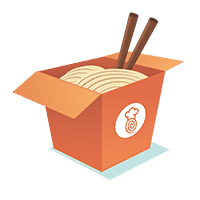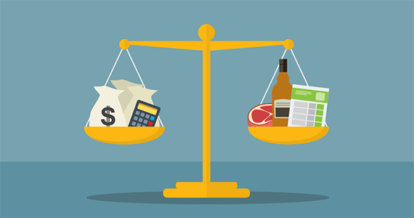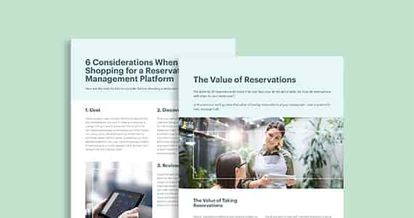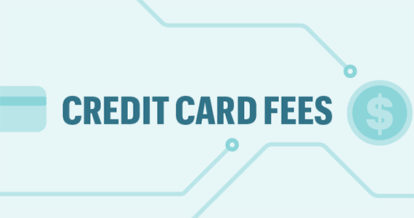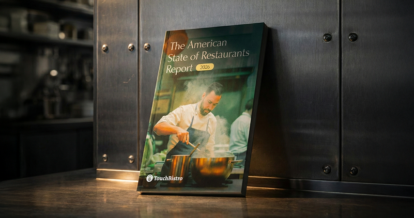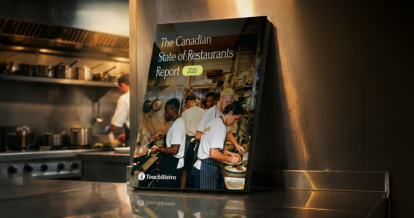Fast, good, and cheap: this is the unicorn of great financial quotes.
But guess what? Unicorns don’t exist.
Opening a restaurant involves a lot of shopping around, maybe more than your brain can (or wants to) handle. While some people may get a kick out of comparing vendor prices to get the best deal, many don’t have the patience required to gather as many as five quotes per vendor, endure the negotiation process, and settle on someone they trust.
But as a former owner of a catering business, I’m here to tell you it’s worth it, for the sake of your business plan and your bottom line. Here are some hard and fast rules for getting the best quotes for your restaurant.
First, Let’s Start with Some Ground Rules
Quote gathering is an art and a science – art being negotiation, and science being numbers. It’s about how much leverage you have against your opponent – or, you know, the vendors who are going to help make your restaurant a success.
If you gain nothing else from this post, you’ll have benefited a lot just by adhering to these rules:
- Examine each quote against your business plan. It will help you keep priorities in mind.
- Get three to five quotes for each service.
- Take no more than a month to settle on a vendor: quote gathering, negotiation, and contract signing need to happen quickly so that you can move forward with every aspect of your business.
- Start small to big: get quotes from small businesses before larger ones.
- Use small business quotes as leverage against those provided by big businesses. Larger companies will be more likely to negotiate prices and offer additional benefits.
- Never send vendors quotes from other vendors: always give them ballpark numbers when you’re letting them know how much you’ve been quoted.
- Never, ever sign with the first vendor who gives you a quote until you’ve received a sufficient number of other quotes.
- Always look for promotional offers: you may be able to get free marrow bones when you buy a hundred pounds of meat or equipment with extended parts and labor warranties.
Now let’s get into supplier considerations for food, equipment, alcohol, and your point of sale.
Food
Are you sourcing primal cuts of protein for the chef to process or having the vendor portion retail cuts? Which is cheaper?
At first glance, it may be cheaper to get your chef to do some butchery, but keep in mind that not every chef is a master butcher or has use for the leftover trim. Quotes from your supplier will definitely come in lower if you’re not asking them to do prep work.
But those prep costs have to be captured somewhere: nothing is free. So make sure that when you’re getting quotes from food suppliers, you’re considering labor costs that may end up being higher if you bring in your top chef for extra prep time.
Also, I’ve said it before and I’ll say it again: go back to your business plan. First, don’t confuse the vendor with a producer. If your business plan or concept is set on farm-to-fork, you’ll be looking at higher quotes from producers rather than lower ones from a vendor.
Let’s say you’re a steakhouse and you want to be known for your higher quality steaks. Maybe it’s worth taking the higher quote from a producer and leaving the butchery up to the chef. But that means you’ll need to make up the cost elsewhere, with a menu item that’s not your staple. Maybe take the lower quote from a vendor to supply portioned poultry and make sure your markup is high enough to compensate for the beef and extra prep time.
Equipment
If you’re a new restaurateur: do not buy new equipment.
Do. Not. Buy. New equipment.
You can’t afford it, and you don’t need it. If you’re going to buy (as opposed to leasing), shop around for lightly used equipment that’s in good condition with at least some remaining warranty left on it. A used oven that’s five to ten years old still has about two to five years on it if it’s been cared for. You can always upgrade when you have the cash flow.
Here are some things to watch for when you’re getting quotes on equipment:
Warranty and Service
If you’re buying anything, look for a good warranty or an option for additional service plan. If you buy without warranty, there’s a good chance you’re throwing your money away.
I once did a catering event with another caterer. We split the event right down the middle, and we were each in charge of our own equipment rental. One of our fryers – I won’t say which one! – was rented from a reputable company, and the other we got from someone who just opened up their own rental shop.
The one from the small rental shop didn’t have a warranty, arrived late, and broke down. We ended up hacking together a solution.
Make sure you have a warranty.
Delivery Time and Distance
When I owned my own catering business, I was hired to cater a party that needed a tent. I called local businesses for quotes first, then the city next door, then the city next door to that. I received the cheapest rental fee from the business the furthest away from the event – but the delivery cost came in sky high.
Make sure you ask about delivery fees up front, as it can make or break a quote.
Repairs
So there is one benefit to buying new equipment: you might be able to get repairs included, at least for a certain amount of time. But the reality is that most new restaurants don’t have the cash flow to buy new and save on repairs later. You may just need to budget for repairs until you can afford to buy new, once you’ve been open a few years.
Installation
If you’re renting equipment for events make sure to ask about install and setup fees. When buying used equipment, you’ll likely need to outsource your installation. Make sure you have room in your budget for an installation quote. Make sure you ask about installation costs from your vendor before getting your quote, so you can seek out additional quotes for installation if required.
Alcohol
Quotes from alcohol suppliers are definitely tied to your business plan. Your approach to seeking quotes will depend entirely on your concept. If you want to be known for your craft beer, for instance, you’ll need to seek multiple quotes and develop longstanding relationships with several breweries. Same goes for cocktails. If you’re not super focused on premium alcohol, then a liquor distributor maybe a good choice to cover a broad range of beverages.
Remember to leverage your bar manager or lead bartender for this part. They’ll have the established relationships required to make the process go much more smoothly. If you’re a place that prides itself on its beverages, seeking quotes for alcohol can be a feat unto itself – you’ll need to get three to five quotes for each premium item that requires a separate vendor. So don’t do this alone if you can help it!
Point of Sale
There is no one-size-fits-all for a point of sale. Your point of sale needs to be customized for your venue, and for the needs of your business.
Let’s say you’re a large venue with a second floor and a patio. You’re going to want a mobile POS so that your servers aren’t wasting time running from one end of your restaurant to another, possibly forgetting your customers’ orders during the trip. The size of your venue in addition to your staff will determine how many POS terminals you need. You’ll need a lot more than, say, a coffee shop that only needs one stationary terminal at the counter.
When you’re seeking POS quotes, make sure to consider the following questions:
- How fast can my system be up and running?
- If my internet goes down, will I still be able to operate my POS?
- Is it easy to train my staff how to use my POS?
- What are the reporting capabilities of the POS?
- Is the interface of the POS intuitive and easy to use?
- Does my data remain secure and private?
Your POS provider should also be asking you a lot of questions about the nature of your restaurant during the demo. Good POS providers know that every restaurant is different, meaning your POS needs to be customized for your goals.
Follow these guidelines when seeking quotes for your business, and the process will run much more smoothly than if you were flying blind. Multiple quotes, a solid negotiation process, and confidence that you’ve uncovered hidden costs can mean the difference between an accurate budget and nasty financial surprises.
Download our free inventory template
Sign up for our free weekly TouchBistro Newsletter
